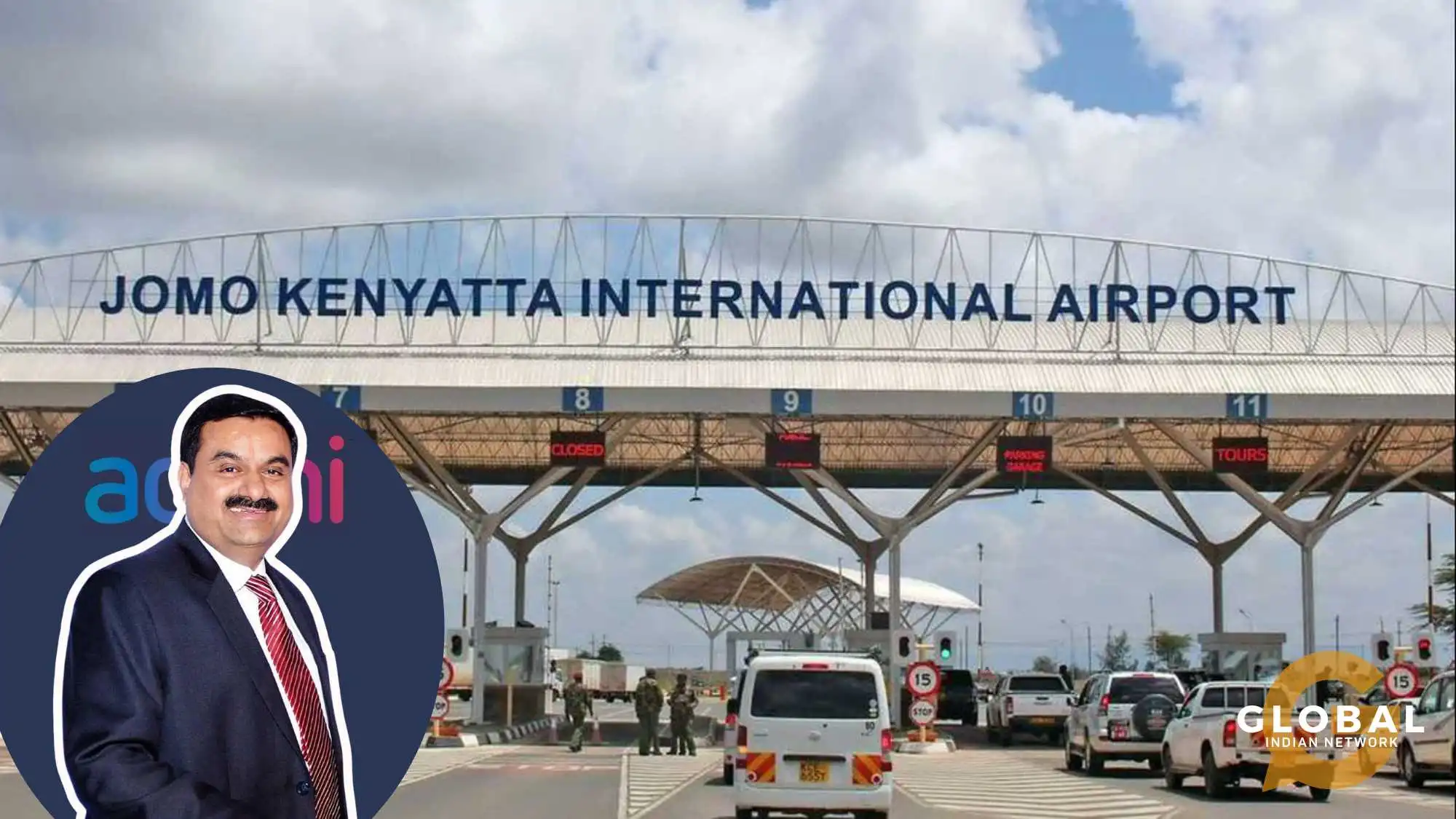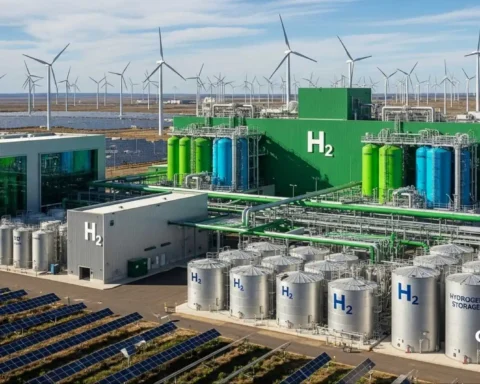Did you know that flights to Nairobi’s international airport have been delayed these days? So, what is happening? Read on…
These are the headlines in some major newspapers on 11 September 2024.
‘Flights grounded at Kenya’s main airport as workers protest over Adani deal’
‘Kenya airport workers protest deal with Adani Group, flights grounded and cancelled due to strike’
‘Adani Group-Kenya Airport $1.85 billion deal suspended by Kenyan High Court; details inside’
In a bold manoeuvre highlighting its expanding influence beyond the borders of India, the conglomerate, the Adani Group, has set its sights on the African continent by finalising a groundbreaking agreement to manage Nairobi’s Jomo Kenyatta International Airport (JKIA). Gautam Shantilal Adani is the richest person in India as of September 2024, when this piece was written, with assets of more than $100 billion. This acquisition marks a significant leap forward for Kenya’s aviation sector and highlights Adani’s ambitions to expand globally, potentially transforming the future landscape of air travel in East Africa.
Kenya aims to become a global trade and tourism hub with improved infrastructure, services, and connectivity through a deal with Adani, which will bring its global expertise to modernise the airport, a key gateway for millions of travellers.
Will this agreement provide the impetus that Kenya’s aviation sector has long awaited, or will it herald potential disruptions ahead? Let us understand the nuances.

The Controversial Deal
In July 2024, Nelson Amenya, a whistleblower, shared a copy of Adani Airport Holdings Limited’s proposal to develop and expand Nairobi’s Jomo Kenyatta International Airport under a 30-year concession on social media platform X. According to globelynews, the apprehension of the public is due to the secrecy around the deal, the no-bid contract, and Adani corruption based on recent investigations by Hindenberg Research, the Financial Times, and the Organised Crime and Corruption Reporting Project. The other factors that are pointed out are the impact on local jobs and businesses, the overriding of Kenyan nationalism, and geopolitical issues.
The Kenyan government deal is to invest $1.8 billion in airport upgrades, including a new runway and terminal. However, this has sparked protests among airport workers, who fear job losses and unfavourable working conditions. The Kenyan High Court temporarily halted the deal’s implementation due to ongoing unrest, allowing for a judicial review to address concerns from the Law Society and Kenya Human Rights Commission.
According to the Organised Crime and Corruption Reporting Project (OCCRP), the news report says:
“In their petition, the Law Society of Kenya (LSK), the country’s main bar association, and the Kenya Human Rights Commission (KHRC) said that the Adani proposal is “unaffordable,” “irrational” and threatens job losses.
The joint application told the court that the country could independently raise the $1.85 billion required to upgrade the airport, but under the Adani proposal “the risk of illegality and wastage of public funds looms large.”
Flights are delayed or cancelled due to staff strikes, fueled by public discontent over the deal’s employment and implications for national interests. The Ruto administration has been criticized for alleged police brutality and the disappearance of activists, with the Inspector General of Police found in contempt of court.
Image source: Nairobi’s International Airport (serrarigroup)
Image source: Chairman of the Adani Group Gautam Adani. Photo courtesy NMG (hornobserver)
Mwango Capital is a financial research firm primarily focusing on African equities, with occasional exposure to global equities. Their tweet of 2 September 2024 is summarised below:
Airports Infrastructure PLC (AIP), a wholly-owned subsidiary of Global Airports Operator, was incorporated in Kenya on August 30, 2024. The company aims to manage, operate, and maintain airports in Kenya. It has a share capital of KES 675,000,000, divided into 6750 equity shares valued at KES 100,000. The parent company, Global Airports Operator L.L.C., holds 100% of the share capital. AIP’s incorporation complies with the Kenya Companies Act of 2015, and business operations have not yet started, indicating its early stages of establishment.
Adani Enterprises has established a new subsidiary in Kenya called Airports Infrastructure PLC
Adani’s Takeover of Nairobi Airport: A Controversy Amid Kenya’s Ties with China
The Indian Adani Group’s proposed takeover of Nairobi’s airport has sparked a heated debate in Kenya. The debate has focused on sovereignty, foreign dominance, and economic implications. The issue also raises questions about Kenya’s relationship with global powers, particularly China, a major economic partner. This has added a geopolitical dimension to the debate, raising regional sensibilities.
Have a look at the timeline.
Image created by the author
Image created by the author
The Adani Deal: What’s at Stake
Adani Group is interested in expanding its presence in Africa’s infrastructure sector, particularly in managing and expanding the JKIA airport, a crucial regional connectivity hub in Kenya. The proposed deal would involve Adani’s expertise from India and other global ventures, with supporters arguing that the investment would modernise the airport, create jobs, and enhance efficiency in Kenya’s key infrastructure hub.
Image source: Adani Group Building. Photo courtesy internet (hornobserver)
Opposition voices argue that handing over strategic asset management to a foreign entity, particularly with global political ties, compromises Kenya’s sovereignty. Sceptics fear Adani’s environmental and regulatory issues, which raise concerns about transparency and ethical business practices. Concerns about potential job losses for local workers have also sparked anxiety, with airport unions strongly opposing the deal.
Potential Downsides for Kenya
Adani Group’s partnership with Kenya for the international airport carries potential risks, including economic, labour, governance, environmental, and public sentiment issues. A comprehensive approach to mitigating these risks for mutual benefit is necessary.
Economic Risks
Critics argue that foreign takeovers could lead to job losses and loss of control over key infrastructure, potentially harming the local economy and reducing the financial benefits for Kenyan stakeholders, as foreign entities prioritise profit over local interests.
Labor Concerns
The Kenya Aviation Workers Union (KAWU) is concerned about Adani’s takeover, fearing potential layoffs and job security for current employees. Despite Adani’s commitment to absorb Kenya Airport Authority (KAA) employees for two years, workers are concerned about future employment conditions.
Image source: Kenya Aviation Workers Union members (Businessdailyafrica)
The image above shows Kenya Aviation Workers Union (KAWU) assistant treasurer Daniel Yatich addressing members at the Jomo Kenyatta International Airport in Nairobi on September 2, 2024. They condemned the public-private partnership (PPP) that will see Indian-based Adani Group Holdings take over operations at JKIA.
Governance and Regulatory Challenges
The Kenyan government’s lack of transparency in public-private partnerships, including the deal with JKIA, has raised concerns about governance issues and the potential loss of local autonomy over critical infrastructure.
Environmental Implications
Adani’s past environmental controversies raise concerns about JKIA’s new management’s environmental stewardship. Fears of profit prioritisation lead to neglect of environmental safeguards, potentially affecting local communities and the airport’s environment.
Public Sentiment and Community Concerns
Widespread protests and public discontent over the Adani deal could destabilise the investment climate and strain government-citizen relations in Kenya, potentially intensifying the crisis.

Protests and Public Outcry
Local unions at JKIA have protested against the proposed takeover, citing potential layoffs, reduced wages, and poor working conditions. The deal’s lack of transparency has fueled public outcry, with many demanding more details about the agreement’s terms.
The National Assembly’s Committee on Transport and Infrastructure has failed to comply with the government’s directive to cease its involvement with Adani. Auditors and KALPA raised concerns about the airline’s aircraft suitability, overpricing, and unsustainable debt levels.
Kenyan protesters are concerned about the Adani Group’s plans to build hotels and commercial developments on public land. They fear they would prioritise foreign interests over local communities, leading to job losses and an influx of non-Kenyan workers and threatening Kenya’s economic sovereignty and livelihoods reliant on tourism and community resources.
Image source: Nairobi Airport in functional disarray (Bloomberg)
Protesters argue that Kenya hasn’t learned from past privatisation efforts, which often resulted in foreign investors not enriching local industries and public resources. The government defends its decision, stating the partnership will provide capital and expertise for infrastructure modernisation and tourism growth.
Response of Local Airlines and Businesses
Kenyan airlines and businesses are expected to respond to Adani’s growing aviation influence through collaborative initiatives, competitive adjustments, advocacy for local interests, and adaptations to changing market dynamics, depending on the evolving partnership between Adani and the Kenyan government.
Potential Collaborative Initiatives
The Adani Group and local institutions have proposed a Public-Private Partnership (PPP) framework to improve trust and acceptance of deals by involving local stakeholders in planning and decision-making processes. The initiative intends to address job losses and working conditions, fostering a supportive environment. The Adani Group and local institutions also intend to collaborate on capacity building and training programs for the local workforce, focusing on airport operations, maintenance, and management.
Adani Group intends to explore partnerships with local environmental organisations and government agencies to develop sustainable development initiatives for the airport project, including programs for waste management, energy efficiency, and biodiversity conservation. These partnerships could also support infrastructure development projects like road improvements and public transport systems, enhancing accessibility and convenience for travellers.
The proposal aims to enhance transparency by establishing communication channels for deal progress updates, collaborating with local commerce organisations to stimulate investment and entrepreneurship, and ensuring aviation standards and regulations through cooperation with the Kenya Civil Aviation Authority.
The China Factor
Kenya’s relationship with China has exacerbated the situation, as China, over the years, has become one of Kenya’s largest creditors and investors. China has invested billions in infrastructure projects like the Standard Gauge Railway (SGR), roads, and ports, and it has involved Chinese firms in the construction and management of these projects. According to the New York Times, the SGR project was part of a secret Chinese loan in 2014 by William Ruto. The report mentions that ‘the railway starts from Kenya’s coastal region but ends in the middle of nowhere.’
Adani’s potential entry into Kenya, seen as a move towards diversifying foreign investment, has raised concerns among analysts. It suggests Kenya is reducing its reliance on Chinese financing by involving other players like India. Balancing this relationship with China, which still holds significant influence over Kenya’s economic future, is a delicate task, as major changes could strain relations with Beijing, which views infrastructure as a key pillar of its Belt and Road Initiative (BRI).
The India Factor
India has invested over $3.5 billion in Kenya, focusing on infrastructure, manufacturing, and agricultural modernisation. Indian firms like Tata, Essar, and Bharti Airtel actively contribute to Kenya’s growth, demonstrating India’s commitment to deepening economic ties and enhancing capacity-building efforts.
India’s involvement in Kenya’s development requires navigating complexities in its relationships with India and China. Strengthening ties and maintaining a cautious relationship with China are crucial. Sustainable engagement strategies prioritise mutual benefits, regional dynamics, and development goals. The Adani deal scandal could affect India’s image and public discontent in Kenya, emphasising the need for accountability. These strategies are essential for Kenya’s economic independence and resilience.
The Adani deal scandal could impact India’s image and public discontent in Kenya, as the Adani Group is closely linked to the Indian government. This scepticism underscores the need for accountability in administering the airport deal, as public discontent could lead to negative sentiments towards India. Adani’s projects in Sri Lanka and Bangladesh have been the subject of political storms and protests, causing controversy over their deals.
Image source: Adani and Prime Minister Modi (theguardian)
Navigating a Geopolitical Tightrope
Kenya’s Adani takeover of Nairobi Airport raises concerns about economic sovereignty, workforce future, and foreign company influence. Kenya’s emerging relationship with India and China’s Belt and Road Initiative significantly impacts its development trajectory.
Ongoing protests and public opposition challenge the Kenyan government’s belief in the benefits of the Adani deal. This highlights the need for Kenya to balance foreign investment with national interests, a crucial test of its leadership and global economic position.
President of Kenya, William Ruto
Kenyan President William Ruto’s popularity has fluctuated since his election victory in 2022. His economic policies, including tax hikes and a controversial finance bill, have sparked protests and discontent. Public opinion polls show a decline in Ruto’s approval ratings, but he remains a significant political figure in Kenya.
Kenya’s populist president has misread the popular mood (Financial Times)
Kenya’s 2024 Finance Bill, aimed at raising $2.3 billion to address the country’s debt crisis, faced opposition due to its impact on essential goods like bread and cooking oil. The International Monetary Fund halted funding, highlighting the complex relationship between domestic revenue measures and international financial support. Protests led to violent clashes and the deaths of 22 people, prompting Ruto to withdraw his support and call for a national dialogue for alternative solutions.
Recent News
The court granted leave to file a judicial review on September 10, 2024, preventing the implementation of the lease agreement and Adani’s proposal. The Law Society of Kenya and Kenya Human Rights Commission argued that the deal would not yield value for taxpayer money and would cause job losses.
Protest against India’s Adani causes chaos at Kenya’s major airports – ThePrint – ReutersFeed
The Kenyan government has stated that the airport needs modernisation but has not decided on a public-private partnership. If an agreement with Adani is reached, the government promises to establish safeguards to protect national interests. The Kenya Aviation Workers Union has called for strikes due to concerns about job losses and foreign investment in critical infrastructure sectors, highlighting public opposition to the proposed lease.
Is There an Elephant in the Room?
The strength of today’s economy will determine the future’s success, which is true of Kenya. By 2022, Kenya’s total debt reached KSh 9.15 trillion (USD 74.1 billion), raising concerns about sustainability and fiscal responsibility due to investments.
The road ahead depends on how well the economy recovers in quantity and quality. Kenya’s economy is recovering, with real GDP growth accelerating to 5.6% in 2023 due to agricultural and tourism recovery. However, this growth is expected to slow to 5.0% in 2024 due to fiscal consolidation, high public debt, and inflation. The government’s strategic policies aim to stabilise the macroeconomic environment and improve investor confidence, with an average GDP growth of 5.2% between 2024 and 2026.
Quite possibly, the elephant in the room is the trustworthiness of the Kenyan government. The onus is on the government to prove its standpoint and gain the people’s trust. Embezzlement, if any, should be brought out to the open.
Conclusion
The Adani Group’s proposed partnership for managing Nairobi’s Jomo Kenyatta International Airport presents potential benefits and considerable challenges. While the investment aims to modernise airport infrastructure and enhance operational efficiency, it raises critical concerns regarding job security, fiscal responsibility, and the impact on local stakeholders. The ongoing legal and political debates surrounding the deal underscore the need for vigilance and transparency to ensure that Kenya’s national interests are prioritised.
The agreement’s future uncertainty hinges on thorough assessments and stakeholder engagement, which are crucial to fostering trust and support within the community. If the deal progresses, it could significantly elevate Kenya’s status as a regional aviation nexus, yet it must be approached carefully to maximise advantages while minimising risks.
Ultimately, for the Adani airport project to succeed and genuinely contribute to Kenya’s economic and social fabric, it is essential to strike a harmonious balance between ambitious infrastructure development and the principles of accountability, sustainability, and respect for the local workforce.
Nations make strides in development only with the support of their citizens. The Kenyan government should realise that the stakes are high not only for the government but also for the public. If the government initiates talks to achieve balanced economic growth, open conversations can tilt the balance in favour of the nation.
Ultimately, the juggling of ‘People, Planet, Profit’ is a challenge that governments are supposed to have accepted when they swear in. Success lies in long-term solutions for all, not a handful.










